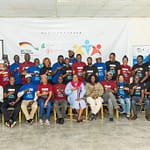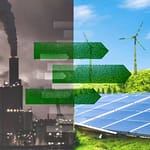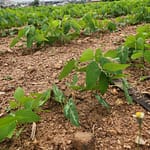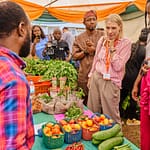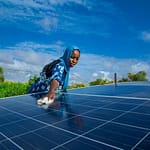At the International Energy Agency (IEA) Clean Cooking Summit in Paris, a pivotal dialogue session titled “Scaling up Finance for Clean Cooking in Africa” brought together experts, policymakers, and financial leaders to address the critical need for investment in clean cooking solutions.
This session highlighted the urgent financial requirements to transition millions of African households from traditional biomass to clean cooking technologies, innovative financing mechanisms, and the crucial role of public-private partnerships in achieving sustainable development goals across the continent.
Co-chaired by Anne Beathe Tvinnereim, Minister of International Development Norway, and Dr. Kevin Kairuki, Vice President of the African Development Bank (AFDB), the session opened with a keynote speech from Anne Beathe Tvinnereim, who emphasized that mobilizing the necessary scale and quality of finance for clean cooking in Africa requires enhancing all sources of funding—public, private, domestic, and international—while implementing policies to raise domestic revenues through taxation, cost-reflective tariffs, eliminating harmful subsidies, and introducing carbon taxes. Additionally, scaling up effective partnerships that deliver tangible results is crucial. Highlighting Norway’s contributions to the said topic, she mentioned Norway’s commitments towards this goal, which included committing $50 million to clean cooking.

In closing her speech, she said, “Colleagues, providing clean cooking for all is a really smart investment, It’s not charity but investment; clean cooking empowers education, health care, gender equality, and economic growth; it is great resource management; it saves our climate; and it saves our biodiversity.“
The panel session was moderated by Dr. Kevin Kairuki, Vice President of the African Development Bank (AFDB), who stated that financing holds the key to catalyzing clean cooking progress.
The panel, which included representatives from governments and international NGOs, was focused on the mechanisms for mobilizing various types of funding, emphasizing the need to mobilize greater resources and commitments to clean cooking access.
The panelists discussed the necessity of both public and private financing and highlighted the importance of creating opportunities for private sector involvement through local bank credit lines, marketing clean cooking as a business opportunity, and fostering employment and local manufacturing. The discussion emphasized the role of concessional and private financing in lowering capital costs and currency risks and the public sector’s role in de-risking projects to attract private investment.
Addressing Kenya’s challenges, Mr David ChirChir, Minister of Energy and Petroleum, Kenya, noted that poverty and the high cost of clean cooking facilities are major barriers, though Kenya is actively seeking greater investments. Learning from India’s success, the shift from fossil fuel subsidies to targeted LPG funding, driven by strong political will, was highlighted. Effective implementation of concessional finance, according to the panel, relies on smart partnerships and innovation to incentivize private sector involvement.
In the second panel discussion moderated by Joseph Ng’ang’a , Interim managing director and vice president for Africa, Global energy alliance for people and planet, titled “scaling up new streams of finance, new financing instruments, funding sources and carbon Credits,”
Panelists explored innovative ways to mobilize financial resources for clean cooking initiatives in Africa. The session brought together experts who highlighted the impact of right policies in unlocking financing for clean cooking and the potential of new financing instruments, such as green bonds and impact investing, to attract both public and private capital. They discussed leveraging the carbon market as a viable funding source, emphasizing how clean cooking projects that reduce greenhouse gas emissions can generate significant revenue.
Miss Adidjatuo Hassan, deputy chief of staff for the state minister of economy and finance, also emphasized the importance of great governance in ensuring that the financial flows will have a strong pipeline of projects.
The panel also underscored the importance of blended financing and smart financial mechanisms to lower investment risks and enhance investor appeal. Trust, integrity, and transparency were also emphasized. Through these strategies, the discussion aimed to provide a roadmap for scaling up financial support and accelerating the adoption of clean cooking solutions across the continent.
The session concluded with a call for collective efforts between all stakeholders.
As the summit drew to a close, the collective resolve was clear: achieving universal access to clean cooking in Africa requires innovative financial solutions, strong policy support, and unwavering commitment from all sectors. The dialogue session on “Scaling Up Finance for Clean Cooking in Africa” not only highlighted the challenges but also charted a course for transformative action.
The insights and commitments from the IEA Clean Cooking Summit in Paris are set to fuel progress, ensuring that clean cooking solutions reach those who need them most and ultimately leading to a healthier, more sustainable future for Africa.
